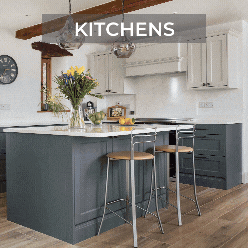In case you missed it see what’s in this section
Let's Talk
What Exactly Are Solar Panels, and Are They Worth It?
Electricity costs are on the rise, and alternative ways of producing electricity have become increasingly appealing throughout the world. Solar panels are devices that capture the sun's energy and convert it into usable electricity for homes and businesses. They are a form of renewable energy - but how do they work, and are they worth it?
Solar panels offer many long-term benefits. Solar panels absorb energy from the sun, which is then converted into electricity that can be used to power homes and businesses. This renewable energy source not only reduces reliance on fossil fuels, but it also helps to save money in the long run. However, there are a number of things to be aware of when it comes to solar panels.
This article will reveal more about solar panels and provide you with additional direction to learn more.
What are Solar Panels?
Solar panels are devices that capture the energy of the sun and convert it into usable electricity. A household system typically costs about £6,000. There is a cost attached to the actual solar panels, as well as installation and maintenance that is needed twice a year (a rough estimate of £4–£15 per cleaning and inspection session). The cost is affected by the size of the solar system as well as its output.
Do Solar Panels Work in The UK?
Yes! Even if you live in the northern parts of the UK, solar panels can still work, because they are not dependent on sunny weather. They simply require sunlight to function. With that said, however, they will work better in the southern parts of England, as the more sun there is, the more electricity can be generated. On very overcast days, the efficiency of solar panels can drop significantly.
What Homes Are Most Suitable For Solar Panels?
- Homes with south-facing roofs are the most suitable for solar panels, as they are able to capture the most sunlight throughout the day
- These roofs should be large enough to be able to accommodate the number of solar panels necessary to provide the desired amount of energy
- In the best-case scenario, these roofs should be diagonal
- Homes without shade hitting them, particularly during daytime
- Homes with inspected roofs that are in good shape
How Much Money Can Be Saved by Using Solar Panels?
Can solar panels save money? Yes. But how much depends on a variety of factors. For example, your shading effect, location, usage, and direction and size of your system will all make a difference. You can contact your local supplier to find out how much you could save. It is generally possible to save between £300 and £1,000, or even more. But again, this is not a guaranteed sum, but just an estimate. You will need to ask your local professionals how much you could save. You can also read more about solar panels on Architectural Digest's website and find out more about how much money solar panels can save and what benefits they bring to the table overall.
The Factors That Will Affect Your Break-Even Point
- Solar battery - if you use a solar battery, you will be able to save more electricity; however, keep in mind that they come at an extra cost which can almost double your initial investment
- Location - if you live in the sunnier parts of the UK, you will get more hours of sunlight per year
- The rate of your Smart Export Guarantee (get on the best rate)
- How much electricity you use
About Solar Batteries
Solar batteries can be a great way to make the most of solar energy from your solar panels. Without solar batteries, you will pretty much need to use your sun-generated energy immediately. But with solar batteries, you can store and save energy for later use, helping to make your solar system more efficient.
However, the downside is that your investment may not return as quickly, because it will nearly double it. Solar batteries cost around £4000
The Pros and Cons of Solar Panels
Whether or not you decide to get solar panels depends on your personal needs and preferences. However, according to Architectural Digest, here are the pros and cons of using solar panels.
Pros of Solar Panels
- Low maintenance
- Guarantees ranging from 12 to 40 years
- Potential money back on excess electricity (look up SEG schemes); a possible average of £1 50 per year
- Less reliance on the power grid
- Reduced energy bills
- They can increase your home's value
- Environmental benefits
Cons of Solar Panels
- There is a high initial cost
- They are less effective on cloudy days and can be ineffective on very overcast days
Are Solar Panels Worth It?
Are solar panels worth it? While there is a high initial cost to install solar panels, they offer many long-term benefits. Solar panels absorb energy from the sun, which is then converted into electricity that can be used to power homes and businesses. This renewable energy source not only reduces reliance on fossil fuels but also helps save money in the long run by reducing electricity costs. In addition, solar panels also provide a variety of environmental benefits, including reducing emissions from burning fossil fuels and providing clean energy.
For those who can afford the high initial cost, the investment may be worth it. But keep in mind, their home and roof should also be suitable for the panels. Additionally, even though solar panels work throughout the UK, they will be more efficient in areas with more sunlight and the least overcast weather.
Solar panels are, however, still a great way to reduce energy bills and contribute to environmental sustainability. They are easy to maintain and come with a guarantee that lasts a number of years. Customers also might be able to get money back on excess electricity. They reduce homes' reliance on the power grid. Energy bills can go down by various amounts, too (but this depends on a variety of factors). Additionally, they can increase homes' values.
Conclusion
Solar panels are devices that capture the sun's energy and convert it into usable electricity for homes and businesses. A typical household system costs around £6,000, which includes installation and maintenance. Even if you live in the northern parts of the UK, solar panels can still work, because they simply require sunlight to function. However, they will be more effective in parts of the country with more sunlight. On very overcast days, they can be ineffective.
Can you save money on solar panels? It is generally possible to save between £300 and £1,000 using solar panels. How much depends on a number of factors, including your location and the direction and size of your system (see more info above). You can contact your local supplier to find out how much you could save.
If you use a solar battery, you will be able to save more electricity, but they come at an extra cost. While there is a high initial cost to install solar panels, they offer many long-term benefits. Solar panels absorb energy from the sun, which is then converted into electricity that can be used to power homes and businesses. This renewable energy source not only reduces reliance on fossil fuels, but it also helps to save money in the long run.
.
Weather in Bristol
Listings










